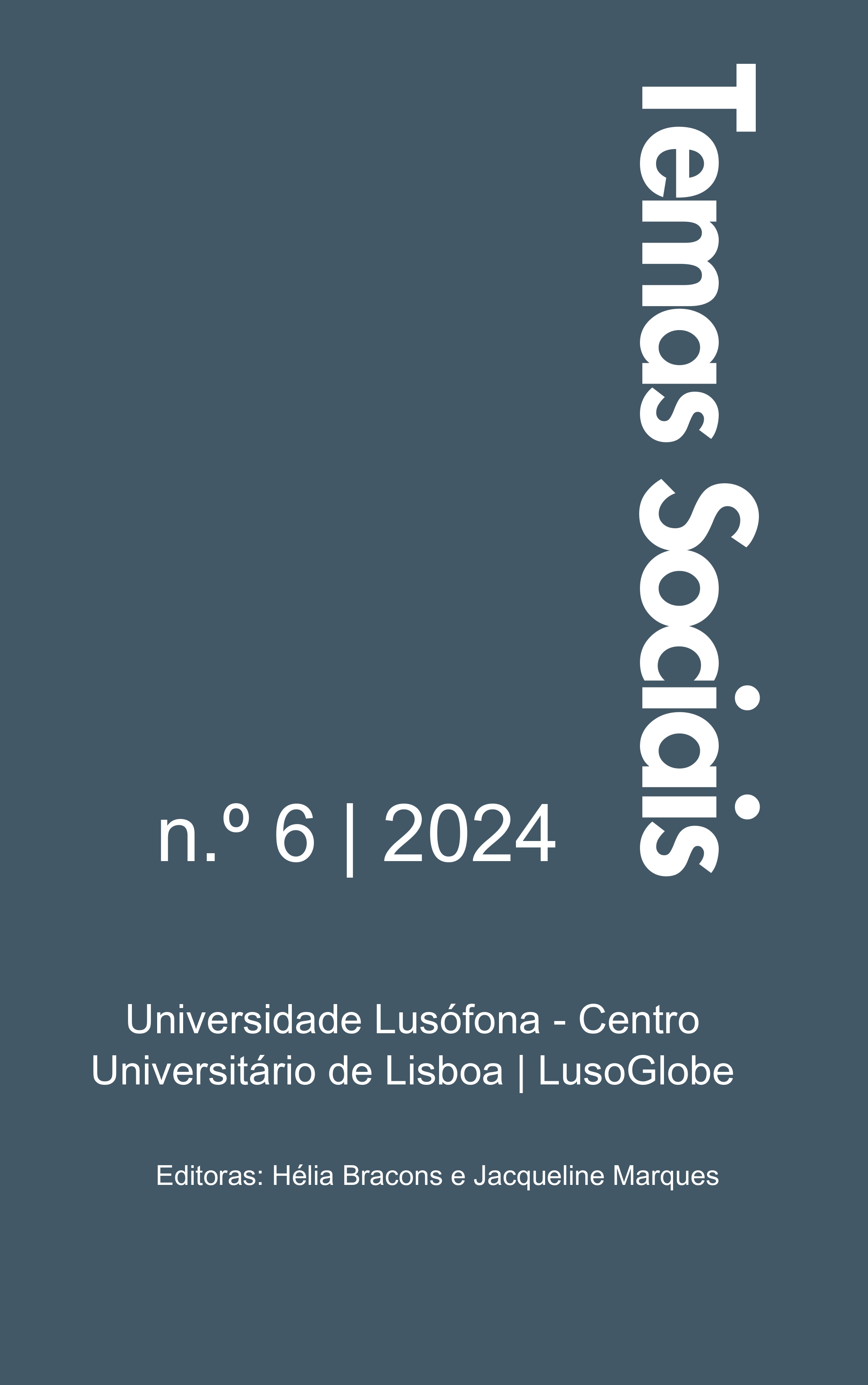Cape Verdean Women - Family and Professional Life: The case of the São Marçal neighborhood
https://doi.org/10.60543/ts_iss.vi6.9418
Abstract
For many women, immigration is a highly positive experience from the point of view of empowerment and individual emancipation. However, for others, the experience entails particular vulnerability and exposure to situations of poverty, discrimination and exploitation. The problems inherent in managing family and professional life affect almost all women, but not all equally, and are more severe for those who live in an immigrant context and have many dependent children. The aim of this study - in which the object of study is Cape Verdean women living in Bairro São Marçal, in Portela de Carnaxide, in the municipality of Oeiras - is to identify the strategies used by these women to reconcile family and professional life and, by understanding their characteristics, to deepen our knowledge of their life paths, work, cultural habits and the level of qualification of the household: the qualitative study sampled 26 interviewees, all Cape Verdean women. As a result, it was observed that in many families, there tends to be a relinquishing of parental responsibilities by men, especially after separation or divorce. In addition, there is little sharing and alternation of roles. In addition to these consequences, which are perceived as worrying problems, a growing number of young people in the neighborhood who are absent from school and/or drop out, and who even display deviant or delinquent behavior.
Downloads
Open Access Policy:
The Journal facilitates free, open and immediate access to its contents to foster the exchange of knowledge at a global level.
By submitting their work, the author(s) authorise the publication and dissemination of their work and are responsible for its content.
Code of Ethics:
The Journal is a digital tool that enables the dissemination of knowledge in a globalised society where technology, communication and information occupy a prominent place. The publication promotes equal opportunities facilitated by knowledge. To this end, the Journal is committed to the content it publishes, adopting a code of ethics based on the following principles:
1. The texts received must be original, by the author(s) alone and unpublished, i.e. they must not have been previously published, broadcast or sent to another publication.
2. Authors are responsible for requesting any authorisations necessary to publish their texts, with the respective reference to the sources consulted.
3. That organisation must authorise work funded by an organisation to disseminate the results.
4. the plagiarism detection tool in force will review all work received at Universidade Lusófona - Centro Universitário de Lisboa.
5. The articles received will be evaluated by two experts in the field, guaranteeing the anonymity of the author(s) and the evaluators.
6. Papers involving people as the research subject must obtain informed consent from all of them, with strict respect for the confidentiality of personal data and, if necessary, the decision of the Ethics Committee.
7. The list of authors should only include those who contributed intellectually to the work, i.e., who designed and carried out the research, wrote up and analysed the results and approved the final version of the text.



